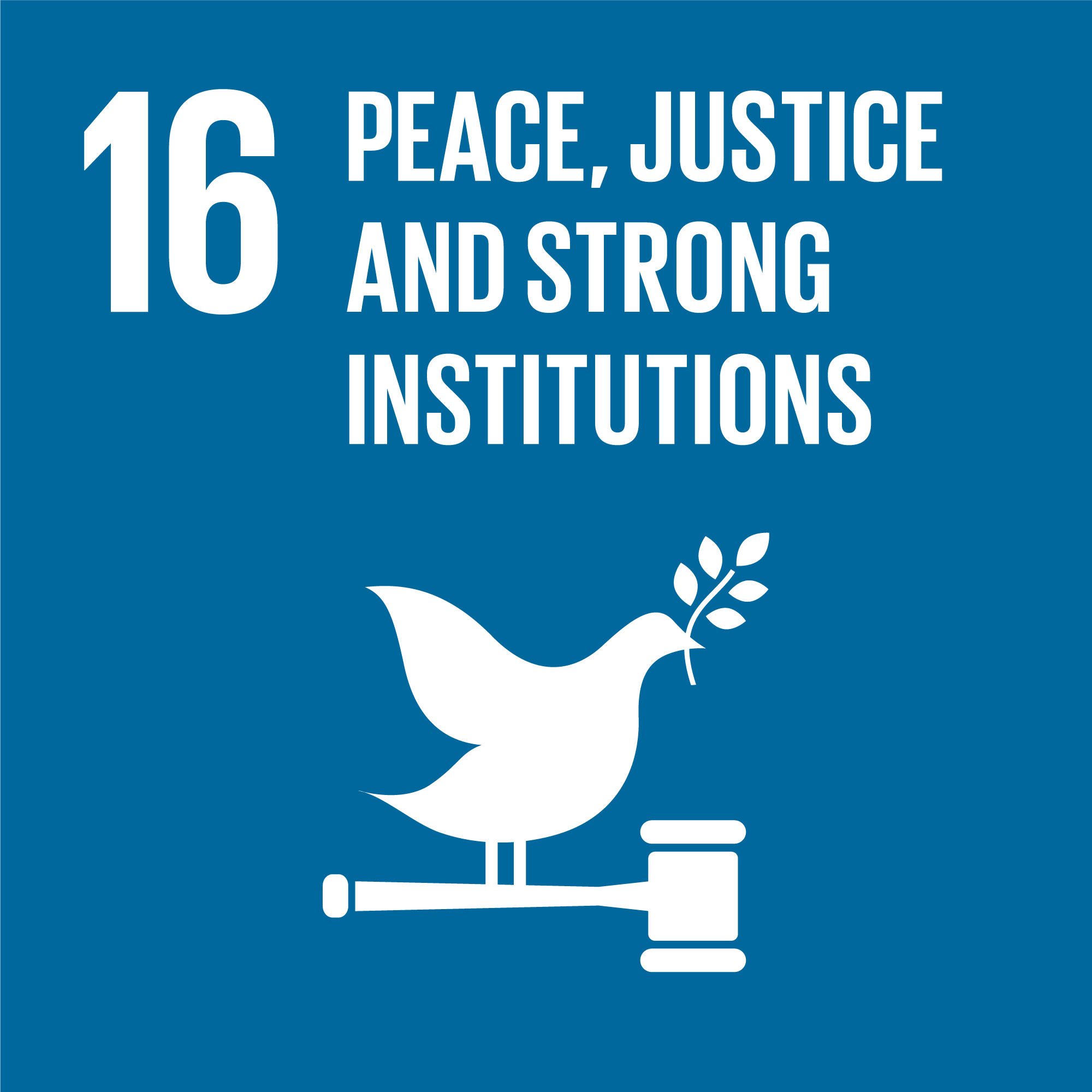Craig School of Business
Sustainable Development Goal 16: Peace, Justice and Strong Institutions

As a public university and part of the California State University system, Fresno State is committed to putting into practice principles of peaceful cooperation, justice, equity and respect for human rights. Fresno State's commitment to and support of human rights is evidenced through our membership in an accrediting body, the diverse array of academic course offerings and the scholarship and campus resources available to support the well-being of our students and employees. The campus supports the human rights of all and in particular the rights of vulnerable groups, including people with disabilities, indigenous people, migrant workers and first-generation students, students who are unhoused in need of food and shelter, people of underserved communities, underrepresented minorities and sexual identities.
As one of 23 campuses in the California State University system, Fresno State offers employees a work environment that supports human rights, supported by system-wide policies and procedures governing the workplace environment. Recruitment, hiring and compensation practices are guided by state and federal guidelines and, as applicable, system-wide and campus specific procedures. Employees are provided a number of leave and accommodation benefits to support them and their families.
Fresno State Initiatives to Promote Peace, Justice and Strong Institutions
The Cross Cultural and Gender Center is a student support service dedicated to promoting diversity, equity, and inclusion. The Center provides educational programs and services through a social justice lens, including affinity rooms for African American, American Indian, Asian Pacific Islander, Cross Cultural, Gender, Latino/a and LGBTQ+ and campus-wide workshops for employees and students through the President's Council for Equity, Diversity, and Inclusion and diversity training through the National Coalition Building Institute (NCBI) Leading for Diversity workshops.